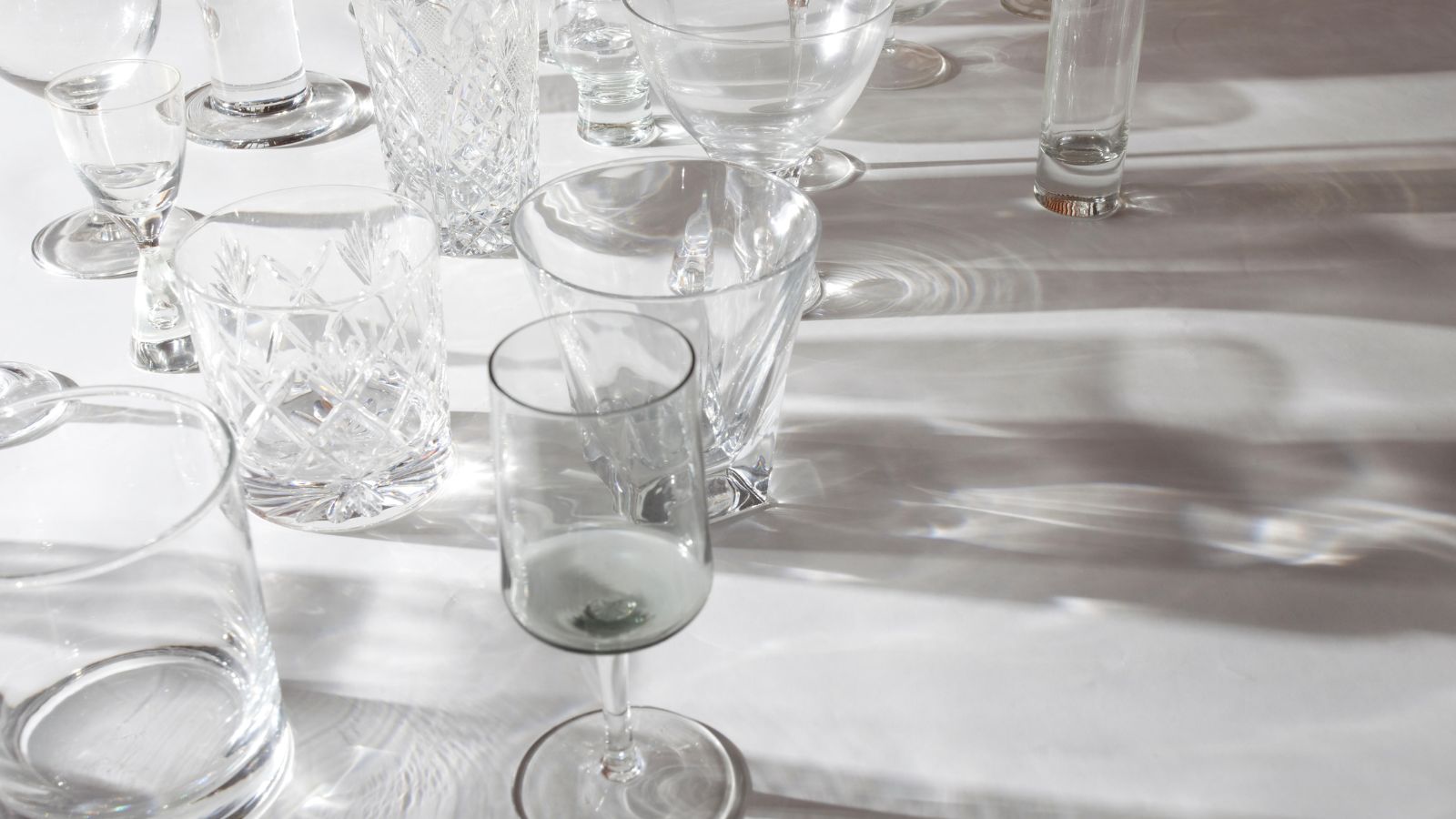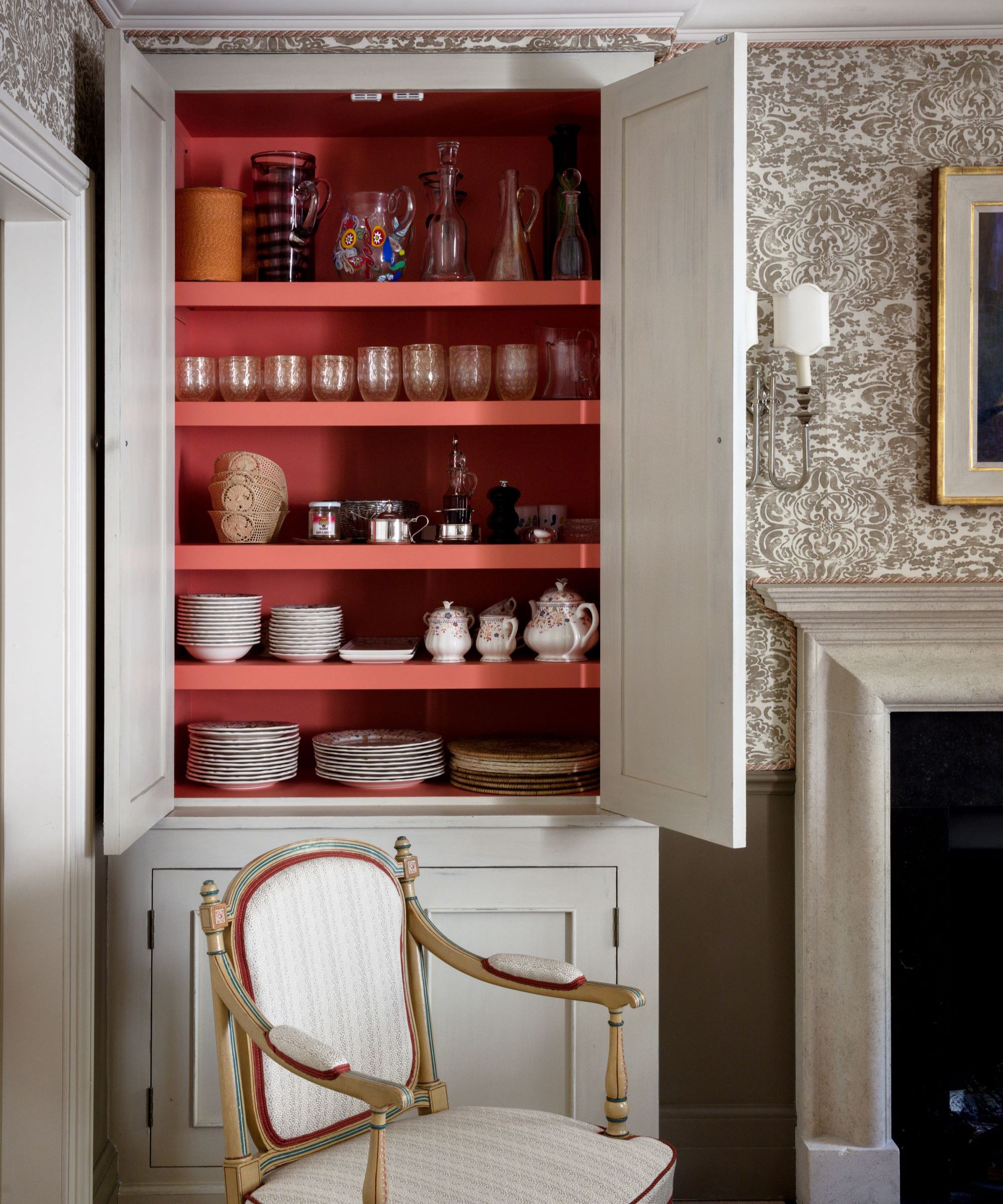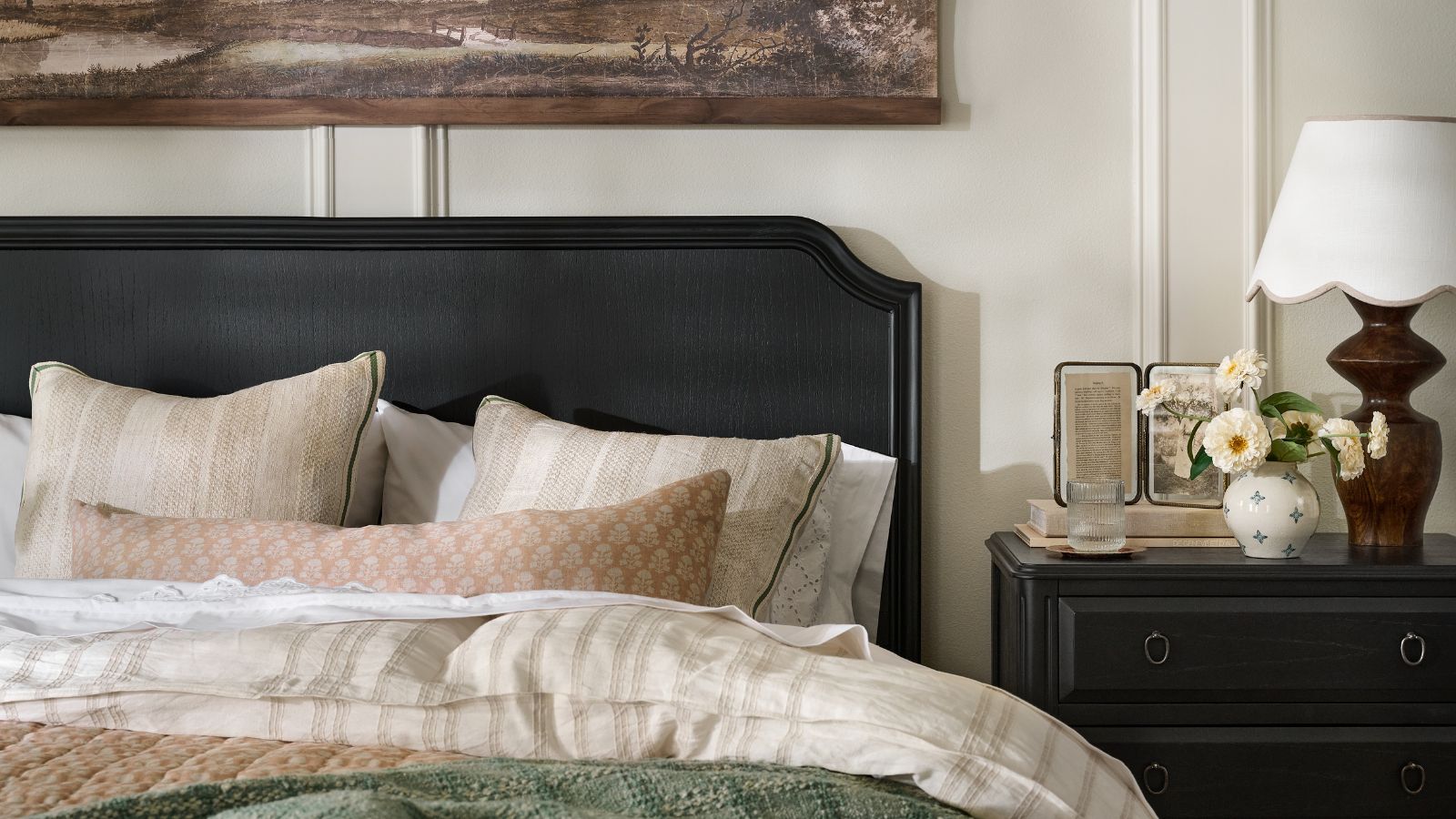How to organize glassware – to make hosting smooth sailing
Keeping your glassware decluttered and organized keeps any hosting event, and the drinks, flowing effortlessly


Glassware is one of those awkward household categories that can be tricky to organize when all grouped together, or you only use some of it when hosting.
Besides storing glassware correctly for longevity, keeping them well organized will make everyday life and hosting far simpler, making sure all your pieces are used and not shoved to the back of a cabinet to collect dust.
Here, professional home organizers have explained how you can organize glassware for efficiency, and how to declutter those odd pieces you are still hanging on to.
How to organize glassware
Whether you are styling a display cabinet with glassware to keep your kitchen organized and pretty, or have sealed-off storage to keep your glassware safe, these organizing tips will help make finding what you need in a sea of glass far easier.

1. Eliminate mismatched pieces
We have all been guilty of holding onto an odd glass we bought on holiday, or the last remaining piece of an old set, but Christine Schaub, hosting expert and host of the Come On Over show, recommends letting them go.
‘Unless a particular glass holds childhood or family meaning, and will be a house item you’ll regret throwing away, hand it off to Goodwill,’ she recommends.
‘You don’t really need it, but someone else might! You’ll love the symmetry of matching glasses all lined up and ready to serve you.’

Christine Schaub believes there is an art to hosting. It starts with an invitation, benefits from good planning, and explodes into joy with attention to detail. She started the Come On Over show to help teach people how to get it right, and it is now award winning.
2. Consider donating sets with missing glasses
One of the top items on kitchen decluttering checklists is sets of glasses that have been chipped, broken, or have items missing. These are best replaced with full sets that you are more likely to pull out of the cabinet to serve guests, says Felicia Bechtel, professional organizer and founder of Spotless Organizing.
‘I would start by categorizing the glasses you have. Look at each glass and see what condition it is in – if you are missing a glass or two because you broke them in the past, you may want to give away or donate them. Replace them with a larger matching set so that if you break any in the future, you don't end up with an odd number.’

Felicia Bechtel is a professional home organizer who wants to help people takethe first step in finding order in their homes. As a busy mom of three, she is well practised in finding order in chaos.
3. Store sets together
When organizing glassware, it helps to store glasses not only by sight but by purpose too, suggests Christine Schaub, hosting expert.
‘Who wants to sort through cabinets for that sixth glass when the company is on its way? Not you! That’s why keeping your sets and types (cocktail glasses, water glasses, wine glasses, etc.) together maintains your hosting sanity.
‘Here’s a tip: For vase-shaped glassware, store every other glass with the widest point up, then down, creating a variation that won't take up unnecessary space on your shelves or cabinet.’
4. Avoid stacking glasses
If you have limited dining room or kitchen storage, it can be tempting to stack glasses as a way of keeping them together and well organized, but this should be avoided at all costs if you don't want to have to replace them, homemaker Christine Schaub, warns.
‘This usually leads to them cracking or chattering if you have to pull them apart, or falling over and making the cabinet door impossible to open without disaster.’
5. Only keep the number of glassware you need
You can't organize glassware without decluttering it first, and this doesn't just involve getting rid of broken pieces and sets with missing items – sets surplus to purpose should go too, urges Karina Toner, operations manager at Spekless Cleaning.
‘The number of pieces of glassware you need in your home depends on several factors,’ she begins. ‘The size of your household matters, for instance. More people generally mean more glasses for daily use. Consider how often each household member uses glassware daily, this might also vary depending on how much time you spend at home, and a busy lifestyle might mean fewer glasses are needed.
‘Additionally, if you frequently host guests or parties, having extra glasses for special occasions is a good idea as different beverages may require different glasses. Wine, cocktails, and water all have their specific glass types, for example. If you have a quieter life, then these just aren’t needed, and hinder the organizing process,’ she adds. ‘The space you have for storage matters. Don't overstock if you don't have room.’
‘There’s no right or wrong here,’ she concludes, ‘it's all about finding a balance that suits your lifestyle, household size, and personal preferences.’

You can't go wrong with a good quality, basic glassware set, perfect for both everyday use and formal hosting. This Horizon Collection from West Elm has matching glasses of all types, form everyday water glasses to wine glasses, and more.
FAQs
What three things should you check before using glassware?
Before using glassware, it is a good idea to check for chips and cracks, dust, and smudges, especially if you are using it to serve guests. Adding liquid to a cracked or chipped glass can cause it to shatter, which can be a safety hazard, while dusty or smudged glasses can alter the taste of the drinks and generally look unpleasant when on your table.
Where should glassware go in kitchen cabinets?
When storing glassware in your kitchen cabinets, it helps to use a shelf that is easy to reach so you are not balancing on tip toes to grab what you need (increasing the risk of dropping them), and close to your other crockery such as plates and bowls as they are commonly used together. This makes clearing up after dinner or setting a table, a smoother process.
When organizing your glassware, be mindful about how you are storing it, reminds professional organizer Felicia Bechtel. ‘The best way to store glasses on a shelf is facing upward, she says. ‘Often times the bottom is heavier and it’s best if the heaviest part is on the shelf. It also makes it easier to grab off the shelf and less likely the delicate glasses will chip.’
Sign up to the Homes & Gardens newsletter
Design expertise in your inbox – from inspiring decorating ideas and beautiful celebrity homes to practical gardening advice and shopping round-ups.

Chiana has been at Homes & Gardens for two years and is our resident 'queen' of non-toxic living. She spends most of her time producing content for the Solved section of the website, helping readers get the most out of their homes through clever decluttering, cleaning, and tidying tips. She was named one of Fixr's top home improvement journalists in 2024.
-
 Joanna Gaines' summer Magnolia collection captures the spirit of summer with pretty florals and nostalgic charm – here's everything I'm shopping first
Joanna Gaines' summer Magnolia collection captures the spirit of summer with pretty florals and nostalgic charm – here's everything I'm shopping firstEqual parts playful and polished – this collection brings Joanna's signature warmth to summer living
By Charlotte Olby
-
 Apple and elderflower martini
Apple and elderflower martinispring cocktail — light, floral and easy to batch for a crowd
By Alice Hart